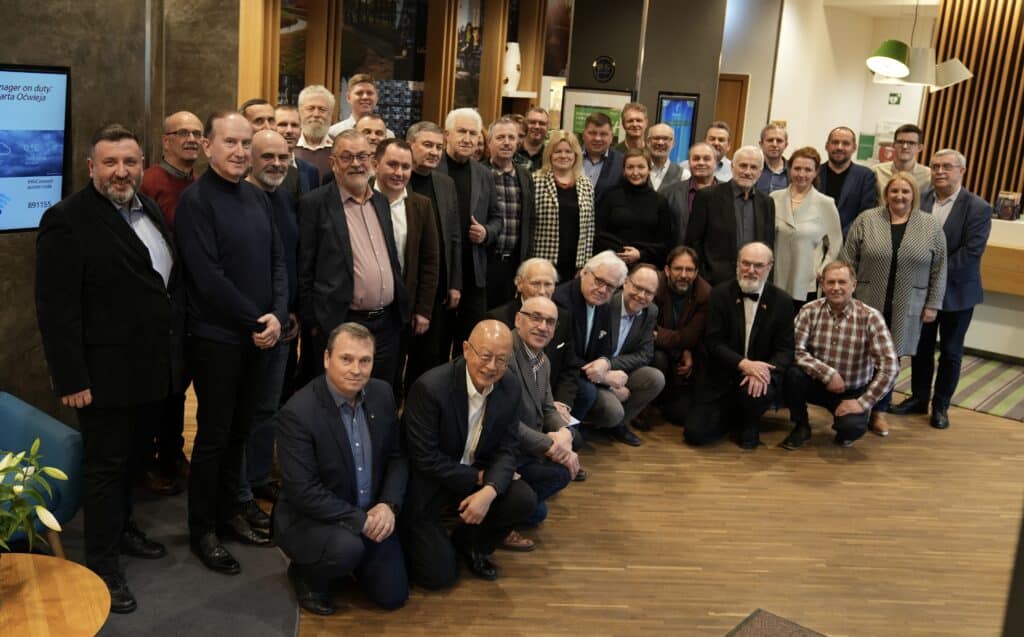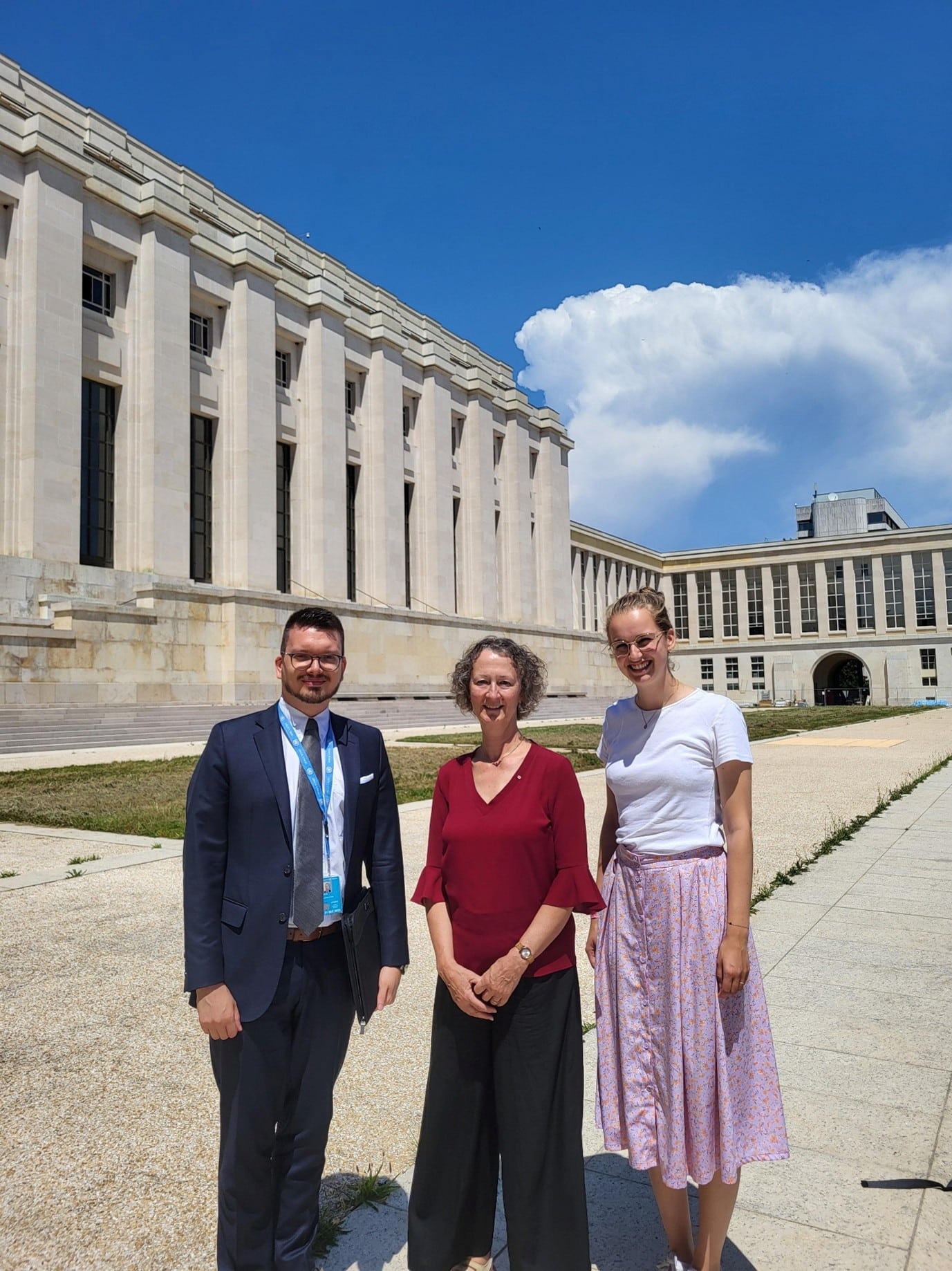Originally posted on Dispatches from the Global Village

“What will come next?” is the question I’m most often asked about Russia’s war in Ukraine. However, war has its own surprises. Prophetic calculations are often fruitless. Will Putin be overturned by his countrymen, and if so, would he be replaced by a kinder or a more vicious commander? Or before Putin allows Western support for Ukraine to bring about his demise, would he unleash his nuclear stockpile as the final and dying act of an ego-wounded desperado? No one knows.
I have enormous empathy for my Ukrainian brothers and sisters who are trying to patch together a broken society through their loving support and their daily exercise of pastoral care. Many Ukrainians are dead or scattered, families ripped apart, churches demolished, jobs lost, spouses and parents gone forever. In the middle of all this, the church of Jesus Christ continues to save, comfort, sustain and provide. Their response to need and conflict is simply stunning. I’ve watched and listened to their prayers for safety, their uncommon sensitivity for Russians caught in the web of Putin’s laws and policing, and their prayers for those hoodwinked by the propaganda machine of the Russian president.
Those of us who live outside the conflict support and stand alongside them, doing what we can. While mission agencies, governments and corporations have provided material and financial help, Ukrainian citizens are lifting the heaviest load, bringing help to the wounded and hope to those in despair.
A recent leadership meeting
Recently, along with the Secretary General of the World Evangelical Alliance, I met in Warsaw with 40 church leaders from Ukraine and surrounding countries, following up on our year-long assistance to those whose lives have been tragically upended by the war.

Then I took a 16-hour train trip to Kyiv, speaking in a church and meeting with evangelical leaders on how we can continue supporting them in their brave ministry to their people.
It’s amazing to see how people live in war. In Kyiv most often, sirens warning of incoming missiles are ignored. They’ve become routine, but I suspect that the people of Kyiv are determined not to let the war unduly upset their lives. Every day, they refuse to let it disturb the rhythm of their schedules, even as the invasion tries to disfigure their country and destroy its identity.
We’ve seen how in April 2022, Russian soldiers, frustrated by their inability to reach and capture Kyiv – amidst unbelievable resistance from a people who they expected to welcome them with open arms – turned brutal against the small community of Bucha. Videos show bodies of citizens lying on the streets, evidence of the indiscriminate mowing down of people who were just going about their daily lives. On my recent visit, we entered an Orthodox church where 300 bodies are buried; many of them had been left on roads, on stairways, or in cars. Earlier I saw cars piled alongside the highway, a kind of automobile cemetery.
Yet in this town of Bucha there was no military presence, no barracks, no manufacturing of munitions, no military reason for destruction except to create mayhem and raise fears among those living there, so that its citizens would either flee or be so frightened as to seek peace at any cost.
Their history explains Ukrainian determination
Ukrainians are much as you see them in the media: their spirit of determination is evident everywhere. They know the cost they must pay, and they are willing to pay it. Review their recent history—as their grandparents remember all too well—and it’s not hard to understand their deep determination to be free of neighbours under whose rule they have suffered dearly.
Putin’s view of Ukraine and its people dates back to the 1860s when a Russian directive declared, “A Little Russia [Ukraine] never existed, does not exist, and never shall exist.” After World War I, Ukraine was broken into four parts, with Russia getting the biggest share. The Bolsheviks finally won out, and in 1921 Ukraine was incorporated into the Soviet Union. Under Stalin, four million Ukrainians starved to death in the Holodomor, and in 1932-1933, in the Great Purge, he executed or shipped off to gulag camps those he suspected as enemies. Then it was Hitler’s turn. In 1941, the Nazis executed 33,000 Jews in a ravine in Kyiv, followed by Stalin deporting and killing 200,000 Tartars from Crimea. By the end of World War II, an estimated 7 million Ukrainian people, including 1 million Jews, had been killed. The largest European country in land area, controlled by a tight Soviet central government, had its churches closed, and many pastors were imprisoned for years as congregations were driven apart by intimidation and spy networks.
As the church understandably feels the weight of sorrow and loss, with so many people killed and so much land desecrated, and while the most natural response is to defend themselves, a longer-term question also matters: what needs to be done to prepare their people for tomorrow’s witness and testimony once the war comes to an end?
Micah the prophet asked this question of us all: “And what does the Lord require of you?” (6:8).
As the church in Ukraine wrestles with surviving, and as we lend support and prayer, pray also for their witness and presence as they bring the love and life-giving presence of Jesus into the wanton destruction of this war. Pray that they may respond to Micah’s question with the same answer that Micah himself provided: “To act justly and to love mercy and to walk humbly with your God.”
Brian C. Stiller
Global Ambassador, World Evangelical Alliance
March 2023





Stay Connected